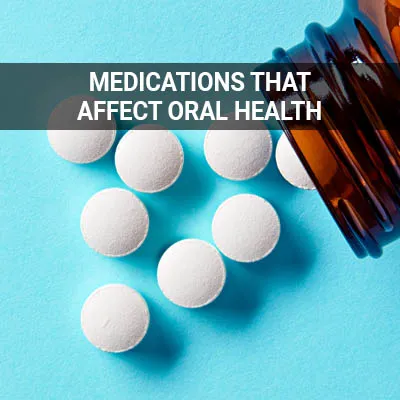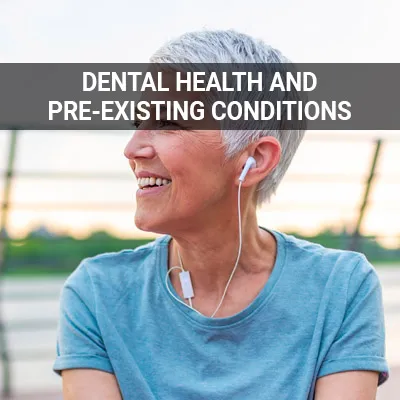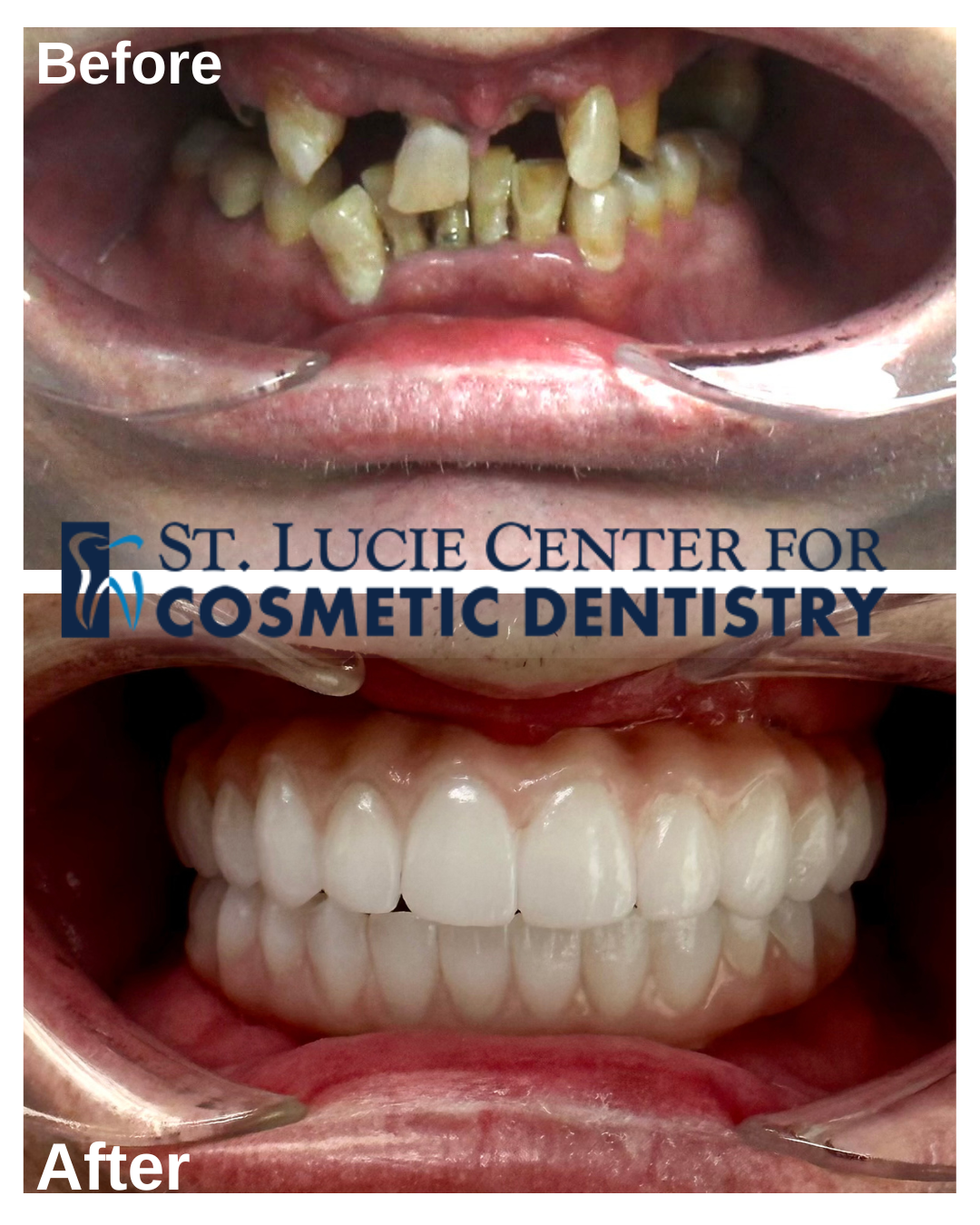Tell Your Dentist About Prescriptions Port St. Lucie, FL
Although prescription medications each carry their own set of side effects, many affect oral health and dental treatment. Patients who are undergoing medical treatment or have ongoing conditions requiring medication may not be open with their dentist about the prescriptions they are taking. Despite the risks of ineligibility for certain dental treatments, the dentist must be aware of medications taken to best care for the patient's oral health concerns.
Patients who build a strong rapport with their dentist increase the likelihood of proper treatment, preventative treatment, and altering medications to suit oral needs. At the same time, they are aware of the risks that medical and oral medications have when combined as well as procedures that put them at a higher risk of other complications. After discussing medical history and prescribed medications with a complete health dentist, a patient can outweigh the risks and rewards and come to a sound conclusion.
Complete health dentistry information is available at St Lucie Center for Cosmetic Dentistry in Port St. Lucie and the surrounding area. We can discuss the importance of building rapport and effective communication with your primary dental provider. Call us at (772) 242-4124 to schedule a consultation appointment to go over prescriptions that may affect your dental treatment eligibility.
Heart Conditions
A primary dental provider should be aware of all conditions, medications, and prior treatments of their patients, especially those for more serious problems, such as heart disease. According to The Academy of General Dentistry, "the most common cause of drug-related interactions is the doctor's lack of information about your medical history." It is important to relay all medical conditions, medical history, medications, supplements, vitamins, allergies, and any adverse reactions that result from medications or treatments.
Despite oral hygiene's positive effect on the heart, patients with heart conditions may be ineligible for certain dental procedures. Invasive dental procedures, such as periodontal treatment, may increase the risk of heart attacks and strokes. Some procedures boost inflammation in the body as it responds to bacteria entering the bloodstream after surgery. If the treatment is more detrimental than the condition itself and poses the risk of ineligibility, then a complete health dentist can weigh the circumstances and offer alternatives.
“Despite oral hygiene’s positive effect on the heart, patients with heart conditions may be ineligible for certain dental procedures.”
Procedures Prevented by Certain Medications
A patient's medical history is not the only factor that can impact their eligibility for certain dental procedures. Their prescription medications can also necessitate special planning or avoidance of certain dental procedures. For example, if patients are taking certain medicines that thin their blood, also known as anticoagulants, they should make sure to inform their dentist before any procedures.
Another example of medications that can impact dental care is the medication class of bisphosphonates used to treat osteoporosis. Rarely, bisphosphonates can cause serious dental complications, so patients' primary dental care provider must be aware of this medication so that they can sufficiently monitor their status.
“… prescription medications can also necessitate special planning or avoidance of certain dental procedures.”
Dental Prescriptions that Would Conflict with Other Medications
After a patient's dental evaluation, their dentist may want to prescribe a medication, particularly if a patient is experiencing pain or an infection. Every drug carries a unique set of side effects and the potential to interact with other medicines. Thus, it is crucial for patients to keep their dentist informed about all medications they are taking, including supplements. This allows the dentist to screen for medication interactions.
Medicines that dentists commonly prescribe include antibiotics, antifungals, anti-inflammatories, and narcotic analgesics. During a procedure, a complete health dentist may also provide an anesthetic medication or a medication to help with anxiety, so they must know what is in a patient's system that could potentially cause harm or an undue reaction.
“Medicines that dentists commonly prescribe include antibiotics, antifungals, anti-inflammatories, and narcotic analgesics.”
Check out what others are saying about our dental services on Yelp: Tell Your Dentist About Prescriptions in Port St. Lucie, FL
How a Dentist Can Alter Treatment Depending on a Prescription
If patients are taking a prescription medication that they think may interfere with a dental procedure or with their dental treatment otherwise, there is no reason to worry. As long as patients provide this information to their dentist, many workarounds are available to ensure that patients receive high-quality, evidence-based oral care.
Depending on the nature of the patient's prescription, their dentist may need to adjust their dose, have patients stop taking the medication for some time (in coordination with their prescribing physician), or do a blood test before they can proceed with dental care. Complete health dentists are skilled in evaluating and treating the patient as a whole, eyeing the oral-systemic link. They know how to modify treatment plans according to their personal medical profile appropriately.
“Complete health dentists are skilled in evaluating and treating the patient as a whole, eyeing the oral-systemic link.”
Questions Answered on This Page
Q. Why are patients with heart conditions ineligible for many dental procedures?
Q. What medicines can interfere with dental procedures?
Q. What kinds of medications do dentists prescribe?
Q. What happens if I am taking a prescription that interferes with my dental care?
People Also Ask
Q. How do preexisting conditions affect dental care?
Q. How do lifestyle choices affect dental health?
Q. How does medication for diabetes impact oral hygiene?
Q. What pre-existing conditions are affected by dental health?
Q. How often should a patient get an oral cancer screening?
Q. What are some of the reasons one might need a tooth extraction?
Frequently Asked Questions About Opening Up to Your Dentist
Q. How do dentists treat patients with heart valve conditions?
A. First, your dentist will ask questions about the nature of the heart condition, including any medications and procedural history. After reviewing this information and potentially coordinating with your medical doctor, the dentist may prescribe you an antibiotic before the procedure to lower their risk of developing a heart infection known as infective endocarditis.
Q. Will a dentist prescribe an antibiotic if I have had a joint replacement?
A. Most likely, no. According to the American Dental Association, the most current guidelines recommend against prophylactic antibiotics (antibiotics taken before a procedure) in patients who have prosthetic joint implants.
Q. What other conditions or prescriptions are important for my dentist to know about?
A. In general, your dentist should know about all of your prescription medications because even if a prescription may not seem related to their oral health, it may interact with medications used by a dentist. For example, as reviewed previously, cardiac medications, anticoagulants, and medications for osteoporosis can affect their dental treatments. Additionally, their dentist will want to know about any history of organ transplants, biological implants, or chemotherapy.
Q. Can taking or not taking my prescription medications affect my mouth?
A. Some patients are, in fact, taking medications that may be negatively impacting their mouth. At the same time, not taking prescribed medications can also affect your oral health. Do not stop taking prescription medicines on your own discretion. In most cases, a physician and dentist will tell you what medication you are being prescribed and its benefits, as well as the risks it carries. Patients who feel their oral health is being affected should communicate that with both their dentist and doctor to try and alter the medication.
Q. Are there alternative dental treatments for patients currently taking interactive medications?
A. Almost all dental treatments have alternative treatments that can be done for patients with certain medical conditions or who are taking certain medications. If the particular treatment does not have alternatives, we may alter the treatment or, when absolutely necessary, speak to the patient's doctor about altering the medication or stopping it for a short period, if possible. Since each treatment differs and has differing levels of necessity, we will discuss the available options with the patients.
Dental Terminology
Learn More Today
If you are interested in better understanding complete health dentistry and why patient-provider rapport is important, call us at 772-242-4124 to set up an appointment.
Helpful Related Links
- American Dental Association (ADA). Glossary of Dental Clinical Terms. 2024
About our business and website security
- St Lucie Center for Cosmetic Dentistry was established in 1984.
- We accept the following payment methods: American Express, Cash, Check, Discover, MasterCard, and Visa
- We serve patients from the following counties: St. Lucie County
- We serve patients from the following cities: Port St. Lucie, River Park, White City, Fort Pierce, Fort Pierce South, St Lucie West, Tradition, Palm City, Jensen Beach, and Stuart
- Norton Safe Web. View Details
- Trend Micro Site Safety Center. View Details
Back to top of Tell Your Dentist About Prescriptions














